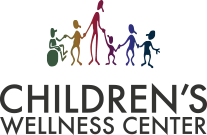Cold or Sinus Infection
A cold is an infection of the nose and sinuses caused by a virus, while a “sinus infection” is caused by bacteria in the nose and sinuses. Their symptoms are virtually identical and include nasal congestion, runny nose, cough, sore throat, headache and fever. You may notice nasal discharge that changes from clear to yellow to green in either case. Colds are much more common than sinus infections. Normal healthy children can have 6-12 colds a year. They are often clustered in the cold weather months and happen more frequently during the first year of daycare or preschool. So how can we tell them apart? The truth is that it is very difficult. For that reason, the American Academy of Pediatrics has established guidelines to help make an accurate diagnosis. Children should be treated with antibiotics for a sinus infection only if they have severe (high fever for 5 or more days, pus draining from the sinuses) or prolonged (more than 10-14 days) symptoms. What is the harm in just giving an antibiotic? Any medication carries the risk of side effects. Antibiotics can cause anaphylaxis and other allergic reactions, rash, vomiting, diarrhea and headaches among other things. Every time your child takes an antibiotic, it increases the chance that he will develop an infection that is resistant to that antibiotic in the future. To minimize the risk of side effects and resistant infections like MRSA, it is extremely important that your child take antibiotics only when truly needed for a bacterial infection. So what can I do? For cold symptoms, do your best to keep your child comfortable. You can use acetaminophen (Tylenol) or ibuprofen (Motrin) for fever or sore throat. For congestion, you can use nasal saline drops and, in younger children, a bulb syringe to help clear excess mucous. Try a cool mist humidifier at bedtime, and elevate the head of his mattress or give an older child an extra pillow to reduce night time cough from postnasal drip. For children over 12 months, you can also try a spoonful of honey for cough. We do not recommend over the counter cough and cold preparations as they have never been shown to be effective and carry the risk of serious side effects.
